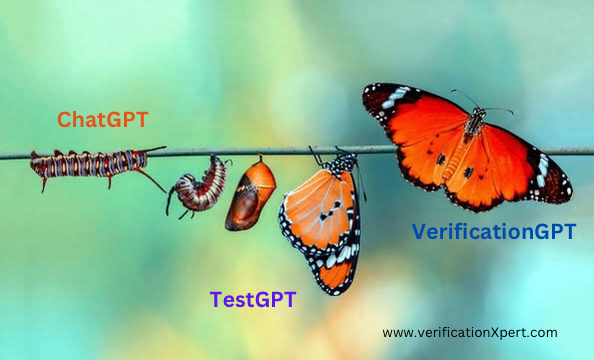The Future of RTL Verification: VerificationGPT

What is VerificationGPT?
The landscape of ASIC and FPGA design is on the cusp of a transformation, powered by the integration of AI technologies. Current tools like TestGPT from Codium AI have revolutionized code testing in programming languages such as Python and JavaScript. However, the unique challenges of Register Transfer Level (RTL) development have yet to fully benefit from these advancements. This is where the concept of VerificationGPT enters—a visionary approach that could potentially redefine RTL verification.
Current State and the Promise of VerificationGPT
-
The Gap in RTL Verification:
While TestGPT has significantly improved the efficiency of coding and testing in various programming languages, it does not currently support RTL verification tasks. This leaves a gap in an area that could greatly benefit from AI-driven automation.
-
Vision for VerificationGPT: I propose a new direction—extending the capabilities of TestGPT to RTL verification through the use of Python-based tools like Cocotb. Cocotb, a coroutine-based cosimulation testbench environment, provides an ideal foundation for integrating AI into RTL verification processes. By combining TestGPT’s AI prowess with Cocotb’s environment, we could develop VerificationGPT, an AI tool designed to automate and enhance the verification of SystemVerilog tasks, functions, and FSMs.
Benefits of AI in RTL Development
-
Enhanced Test Efficiency: VerificationGPT could automate the creation of detailed, context-aware test cases, significantly reducing the time engineers spend on manual testing. This efficiency gain would allow engineers to focus more on higher-level design challenges and innovations.
-
Predictive Insights: Leveraging AI for predictive analysis could help engineers foresee potential design flaws and optimize performance before running detailed simulations, thus accelerating the design validation process.
Challenges and Strategic Integration
-
Maintaining Core Competencies: The introduction of VerificationGPT must be managed carefully to complement rather than replace the fundamental skills of RTL engineers. Ensuring that engineers remain engaged and proficient in both traditional and AI-enhanced methodologies is crucial.
-
Quality Assurance: While AI can streamline many processes, human oversight remains essential to ensure that every design meets the strict standards required in high-stakes semiconductor projects.
Call to Action for Codium AI and EDA Industry
I call upon Codium AI and leaders in the Electronic Design Automation (EDA) industry to explore the development of VerificationGPT. This venture could not only enhance the current state of RTL verification but also set a new standard for the integration of AI in semiconductor design.
As a seasoned ASIC/FPGA engineer with extensive experience in the field, I am excited to offer my expertise and collaborate on this innovative journey. Together, we can drive forward the evolution of AI in RTL development, achieving new levels of efficiency, accuracy, and design quality.
Conclusion
The prospect of VerificationGPT is not just a theoretical improvement but a necessary evolution toward more intelligent and efficient design practices in the semiconductor industry. By embracing and developing VerificationGPT, we can harness the full potential of AI to transform RTL verification, paving the way for more innovative and successful semiconductor projects. Let’s lead this change, ensuring that our engineering practices evolve to meet the demands of modern technology challenges.